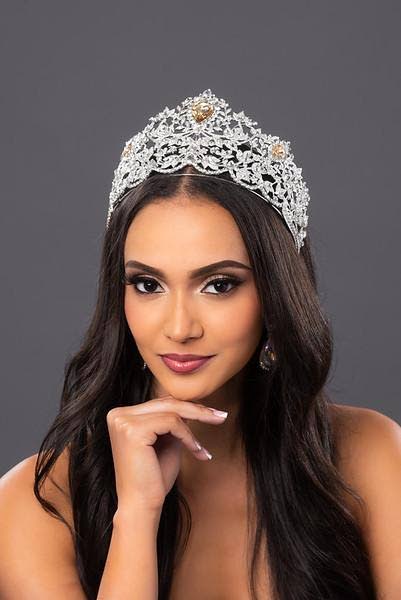Miss Universe pageant – inclusion or confusion?

THE EDITOR: While she was not called as a semi-finalist in the recently concluded Miss Universe pageant, TT delegate Faith Gillezeau did her country proud. Most of us who followed the pageant can attest to her intelligence, beauty, jovial demeanour and sparkling performances, especially in the National Costume segment.
The scarlet ibis portrayed on stilts by a jubilant Faith was hailed by veteran pageant bloggers as one of the best costumes and performances at the competition. Congratulations to our darling Faith, who flew our flag with pride.
However, a level of uncertainty may very well exist in the minds of many Trini fans as to whether the inclusion of several unconventional delegates, who made it to the top 20, actually stymied TT's chances of progressing in the competition.
Transgender businesswoman Anne Jakrajutatip of Thailand purchased the Miss Universe franchise in October 2022 and implemented radical changes so it could be more inclusive. Some of the changes which applied to the 2023 pageant included:
Inclusion of married women:
Since the pageant is supposed to showcase women of both physical and inner beauty, being married should have no impact, and this change was largely welcomed. Still, some people may not find a delegate who has been married multiple times as being a worthy to represent their country. Miss Colombia was the only married delegate this year and placed in the top five.
Inclusion of mothers:
This is another positive change in line with inclusion, as many mothers maintain or even enhance their physical beauty after childbirth, and can be worthy delegates, as was evidenced by Miss Colombia and the representative from Guatemala.
Voice for change segment:
This is a significant introduction that parallels the Miss World’s Beauty With A Purpose segment. Candidates must have an advocacy or project where they are instrumental in improving the lives of others who are in need of assistance – thus aligning to humanitarianism. This is welcome.
Inclusion of plus-sized contestants:
Having excessive body weight, especially from fat, can lead to diseases including diabetes and heart ailments. These diseases cut too many lives short.
Consequently, an unhealthy condition should not be celebrated and the change to allow overweight contestants should be rescinded.
By the same token, anorexia should also have no place in a pageant, as it too is detrimental to one's health.
Inclusion of transgender women:
There were two transgender delegates, with one progressing to the semi-finals.
In my opinion, a person who was born a man and has medical changes done cannot fully conform to the true essence of being born a woman.
While I sympathise with these people, it is an anomaly to include them in a pageant that has been traditionally been for women.
Let’s consider a paraplegic man or woman, with an affinity for sports. Being unable to use his/her legs, we would not expect them to run a race with conventional athletes, would we? So we have Special Olympics and other events specific to people with certain physical limitations. So too, transgender women should be directed to a transgender pageant.
No doubt Ms Jakrajutatip is seeking to revolutionise the Miss Universe brand by making it possible for women of more varied backgrounds and statuses to enter the pageant. As detailed above, some of her initiatives are commendable, while others seem geared to inadvertently rob more deserving delegates of progressing in order to favour the unconventional paradigm.
Only time will tell if this new wave of inclusion ultimately leads to confusion.
JASON VALSINT
Mt Lambert


Comments
"Miss Universe pageant – inclusion or confusion?"